
22 minute read
Saratoga gives back

Secret Society

SLAH EXPLORES THE HIDDEN GEMS OF THE SPA CITY.
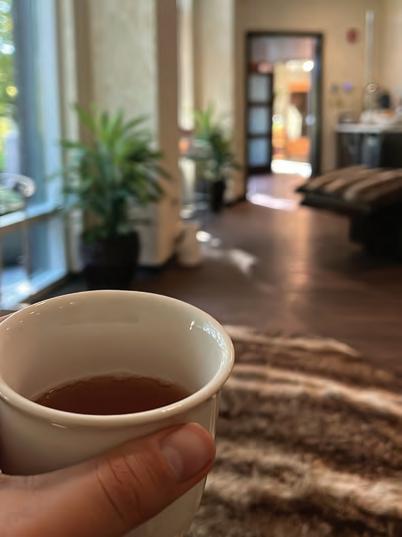
when i showed up early to an interview at Complexions Spa for Beauty & Wellness this fall, I was given a grand tour of the spa, a two-level oasis I’d never stepped foot in before. My tour guide showed me all the different treatment rooms, pausing at a room with a bathtub. “This is our best-kept secret,” she said. For just $39, customers receive a hydrotherapy soak, complete with their choice of custom essential oil blend, and then get to hang out at the spa for—get this—as long as they want, taking advantage of Complexions’ rain shower, indoor/ outdoor relaxation areas, sauna and steam room. “I give this as a gift all the time,” my tour guide said. “People say, ‘Why are you giving me a bath?’ And I’m like, ‘It’s not just a bath.’” That experience, and specifically the incredibly delicious organic hot tea that I sipped on while waiting in the relaxation room (a special
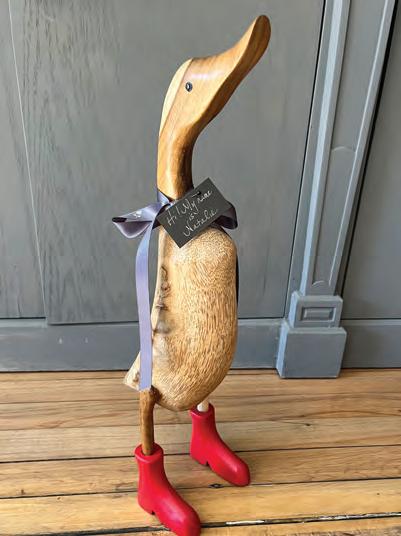
color correct (clockwise,
from top right) Natalie Moore at a House of Colour consultation; sipping tea in the Complexions relaxation room; a decorative duck for sale at Samantha Nass Floral Design; Moore at the opening of Whitman Brewing’s new beer hall.
blend available only at Complexions), got me thinking—what other secrets are Saratogians sitting on? It seems everywhere I go, I uncover one. At Samantha Nass Floral Design’s elegant Lawrence Street shop, I discovered the perfect gift for the Saratogian who has everything—the most adorable kneehigh wooden ducks, an homage to the residents of Congress Park, each with their own personality and nametag. (One was named Natalie, so I may be biased.) In my email inbox, I found a note from a contributing writer about her friend’s love affair with the to-diefor Compton’s mac ’n’ cheese of years past (if you have any information on the long-lost recipe, please come forward). And at saratoga living’s Cocktails & Clairvoyance event earlier this year, I met Amy Latta, an independent House of Colour consultant, who has since taught me (and countless others) the true power of a colorful wardrobe that complements your skin tone.
You can read about those Saratoga secrets and more on Saratoga Living After Hours (scan the QR code below), a newsletter from the saratoga living team that celebrated its one-year anniversary this November 2. As we enter our second full year of SLAH, we hope to hear more from you—the readers and subjects of so many of our stories. So reach out to us! We’re just an email away. We love our city and the people in it. And that’s no secret.
–Natalie Moore
Secret Sharer editorial@saratogaliving.com

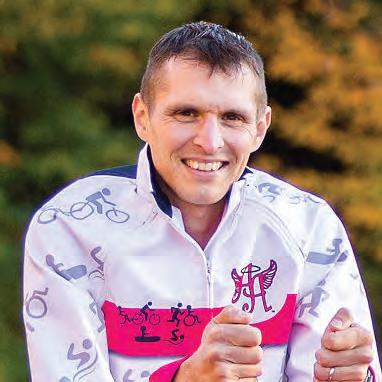
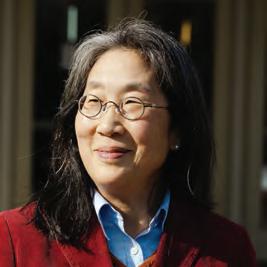
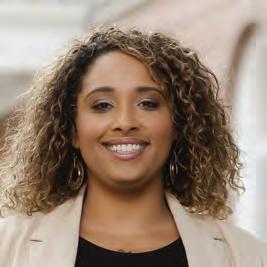
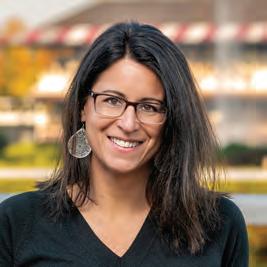
4th Annual Capital Region Gives Back
Thursday, December 15, 6pm Putnam Place, downtown Saratoga Springs Scan the QR code below to purchase tickets!

TURN THE PAGE TO READ UP ON OUR 10 HONOREES—AND THE NONPROFITS AND MOVEMENTS THEY ARE REPRESENTING.
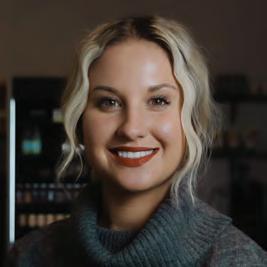
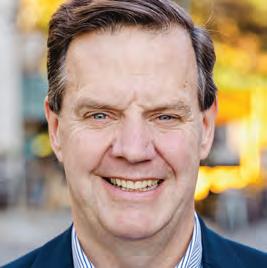
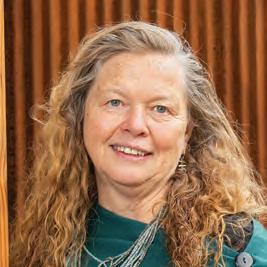
At checkout, choose which of the 10 causes you’d like to support with 50 percent of your ticket price.

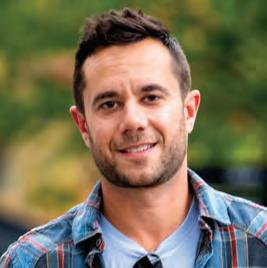
Saratoga Gives Back
FIVE OUTSTANDING DO-GOODERS TAPPED INTO SARATOGA’S FAMOUSLY GIVING SPIRIT IN AN EXTRA-SPECIAL WAY THIS YEAR. WE’LL BE TOASTING THEM DECEMBER 15—AND RAISING MONEY FOR THE CAUSES CLOSEST TO THEIR HEARTS.
Here are their stories.
Scan for party info ➷

Dan Graham
Supporter Lucky Puppy Rescue
When Dan Graham fostered a rescue Pitbull in April 2020, he made it less than a day before he gave in and adopted her. “After having her for about 14 hours, the rescue called to tell me that dogs were being adopted very fast and if I was interested in her I needed to speak up,” he says. “I hung up the phone, looked at her face and said, ‘Well, that was quick. Welcome home, pup.’”
Graham adopted Nikka through New York City’s Rescue Dogs Rock, but wanted to get involved with a more local rescue. He heard about Argyle’s Lucky Puppy Rescue, which was hosting a “Pups & Pints” event at Common Roots Brewing. “I went up there, introduced myself and offered to help them raise money,” he says. “And they looked at me like, sure.”
But Graham was a man of his word, and has since hosted fundraisers including a Pups & Pints event at Frog Alley and an outdoor volleyball tournament at East Side Rec. “Two or three dogs got adopted because of the events I ran,” he says. “It’s really, really fulfilling.”
But while seeing puppies get adopted is what warms the heart, Graham says funding is just as important. It takes money to maintain Lucky Puppy’s two pristine farms— one in Florida and one in Washington County—and more money to transport the dogs on school buses from Florida to Argyle two to three times a month. Speaking of the Florida farm, it takes in a lot of pregnant dogs, and therefore the Argyle adoption center has a lot of puppies available (hence the name Lucky Puppy). “Some people think that they’re going to get this old, beat-up dog when they adopt,” Graham says. “There are dogs that are absolutely amazing that are puppies.”
to the rescue “The
Lucky Puppy farm in Argyle is so well done,” says Dan Graham, seen here with his rescue dog, Nikka. “You can tell they want these dogs to be in a clean, beautiful environment.”
photograph by Francesco D’Amico
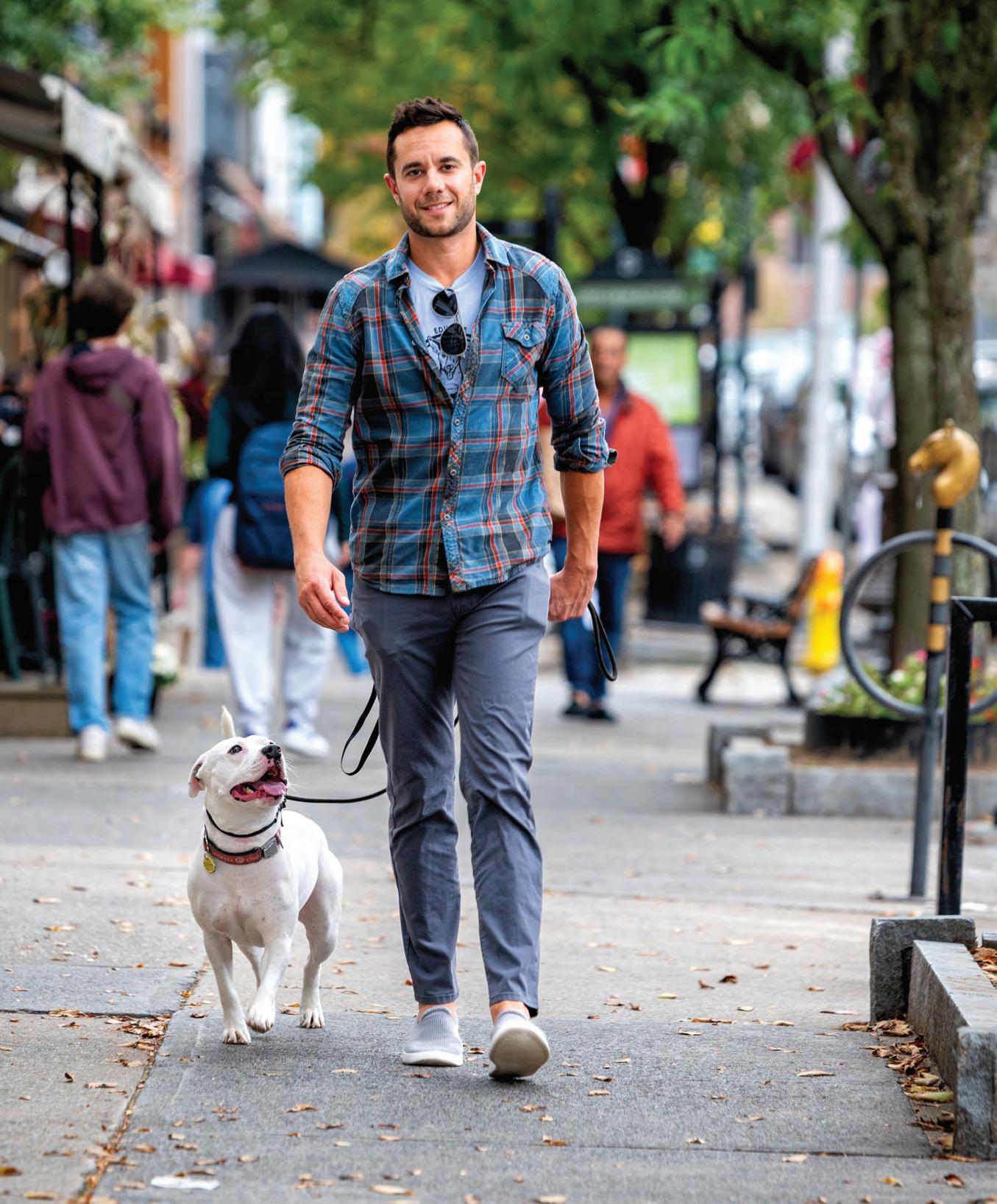

Maggie Fronk
Executive Director Wellspring
It’s a special kind of person who dedicates their entire working life to helping others—and Wellspring’s Maggie Fronk is one of those people. This year marks her milestone 20th year as the nonprofit’s executive director; she previously worked in the realms of AIDS, mental illness and homelessness.
During her two decades at Wellspring, an unparalleled domestic violence and sexual assault services resource for Saratoga County, Fronk saw it through the Me Too movement and says the community is now more willing to talk about these issues.
“We’re starting to see some social change,” she says. “Me Too brought awareness, which helped us redefine the people we’ve seen be victimized, because what we saw in Me Too were some very powerful, well-known, articulate women who said, ‘This happened to me.’”
Wellspring mans a 24/7 crisis service hotline and offers essentials such as emergency shelter and accompaniment to police stations, but stresses that survivors who need help even past the crisis point should call them anytime. In addition to counseling, Wellspring keeps its “Well Shop” stocked with items such as American Girl dolls and diapers, and has a crucial rent subsidies housing program to help survivors move on to a home without violence.
“We have bars you can put on your windows if you’re worried your abuser could be trying to break in,” Fronk says. “And last year we gave domestic violence survivors 15,000 pounds of food. They’d moved beyond the abuse but were struggling financially.”
Under Fronk’s innovative leadership, Wellspring also offers a host of new programs to educate community members of all ages about how to better combat and prevent domestic violence and abuse, including Men With Wellspring (just what it sounds like), Raising the Bar that meets with bartenders, and a student athlete program that’s about “coaching boys into men and athletes into leaders” (just to name a few).
“I’d like to see the social change,” Fronk says. “We need to become very attuned to our social norms and challenge them. We’re all learning.”
hope springs eternal Every
spring, Maggie Fronk thinks of the survivor who told her, ‘After winter’s cold and grey, the warm sun comes out one day—that's what it felt like when I came to you.’
photograph by Francesco D’Amico
bare necessity BARE Blends
owner Annie Berdar is passionate about making healthy food accessible to everyone.
photograph by Konrad odhiambo
Annie Berdar
supporter South End Children’s Café
While BARE Blends cofounder Annie Berdar serves smoothies and salads to working professionals, on-the-go moms and fitness buffs by day, outside of her work at the Capital Region–based franchise, she has her sights set on providing healthy food to other populations. “Back at the beginning of Covid, I learned that most kids rely on the school system for lunches,” says the Saratogian. “I was thinking of ways that I could fill that gap and I came across the café.”
Located, yes, just south of downtown Albany, the South End Children’s Café helps address food insecurity by offering an after-school program where kids can get help with homework, participate in enrichment classes and get a healthy dinner. During the pandemic, Berdar and her BARE Blends staff brought smoothies to the café, and BARE has continued donating food whenever possible.
“We brought a couple of exotic fruits and they loved learning about them and tasting them,” Berdar says of the Children’s Café kids. “When we told them how beneficial fruits and veggies were for them, their eyes just lit up. They were like ‘Wow, I had no idea.’ And kids at that age are so impressionable; when you tell them something like that, that’s something that could stick with them for life.”
Working with the South End Children’s Café inspired Berdar to do more to promote healthy eating habits in the Capital Region: She designed and is in the process of installing interactive Learning Paths with signage about fruits and vegetables in parks around the region, and regularly donates to Albany’s Free Food Fridge. “Food is something we all share and celebrate with,” she says. “It’s something everyone deserves access to.”

back to basics BEST’s Nancy Underwood works seven days a week during track season to care for the race course’s backstretch workers: “They love being here in Saratoga. We create a community. They know they come to us if they’re sick, or sad.”

photograph by Francesco D’Amico
Nancy Underwood
Program Director BEST Saratoga
When Saratoga’s track meet ran a spectator-less season in 2020, Nancy Underwood’s work at the Backstretch Employee Service Team (BEST) of Saratoga barely slowed down. After all, with the horses still running, the legion of backstretch workers who tend to the Thoroughbreds needed care as well. This year, with Saratoga Race Course back in full swing? Underwood and team toiled day and night, seven days a week, to ensure that all workers not only got the healthcare they needed but also felt part of a tight-knit community.
“Wednesday nights we do Bingo with 300 backstretch workers, and we do Sunday night dinners,” says Underwood, BEST’s Saratoga program director. “It’s how we touch them on a personal level to make sure they know us and will come to us when they need something.”
Those needs run the gamut. The majority of the backstretch workers hail from Spanish-speaking areas, often countries where treating an ailment means simply popping into a pharmacy. Given the US’s confusing healthcare web, BEST operates a unique clinic that assists with everything from injuries to diabetes. If they have to travel for an appointment, the nonprofit secures transportation and a translator. “One 18-year-old had never been to a doctor and came in with an untreated eye infection that had left him blind in one eye,” Underwood says. “He was a kid from the mountains of Guatemala and was terrified. They fit him with a prosthetic.”
Horse training goes well until November, and BEST works fulltime until the very last horse and worker leaves. “We offer the most comprehensive services across the country,” she says. “But when they leave us, how do we prepare them? We make sure that prescriptions are set up for refills, role play asking for things they need. We push at the end of the season so when people come back in April, it’s not a crisis situation.”
card stock
In addition to helping Ukrainian refugees during two trips to Poland, Adam Israel hand-delivered hundreds of cards with cash so people could buy basic things like car seats and phone chargers.
photograph by Francesco D’Amico
Adam Israel
Co-founder Letters of Hope for Ukraine
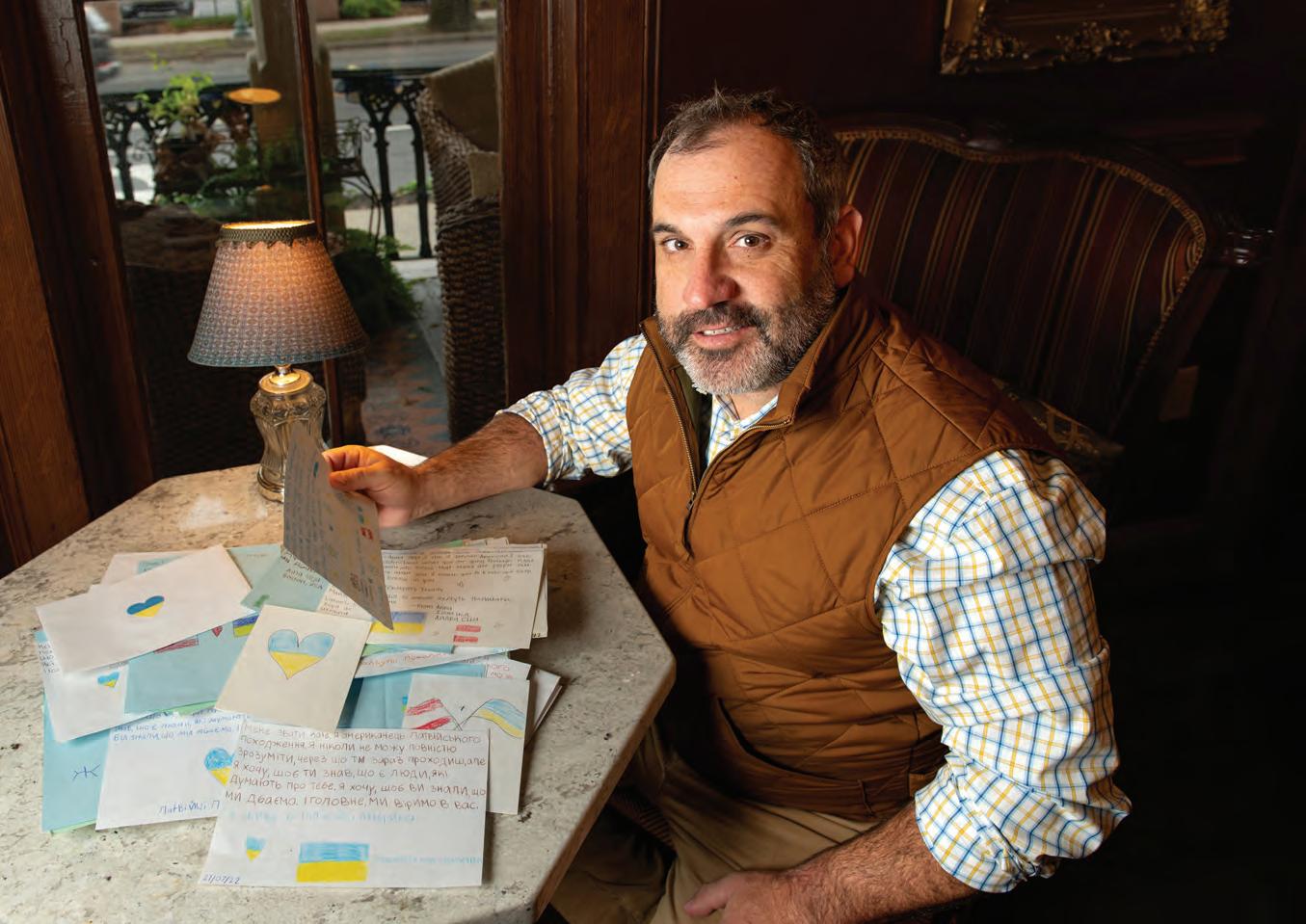
When millions of Ukrainian refugees, after running for their lives, found themselves tragically homeless in countries not their own, Adam Israel knew he had to help—and fast. Within weeks of Russia’s initial invasion of the country early this year, Israel was on a flight to neighboring Poland, carrying cards and cash.
In those early days, blurred by fear of the unknown, the hundreds of donated cards Israel passed out at the Ukraine/ Poland border delivered messages of hope (hence the initiative’s name “Letters of Hope for Ukraine”)— plus $20 cash. Israel and his wife, Kasia, had years prior organized boxes of supplies to be sent to the (twice) hurricane-ravaged island of St. Thomas. In 2022, cash was more practical: People can donate in seconds via Venmo, and the cash proved the quickest way for refugees to be able to buy exactly what they needed (aided by a favorable exchange rate), after a quick stop at a money exchange.
“My wife is Polish, and we lived there during Covid,” Israel says. “We own a cabin and car there, close to the border, and her brother is there. We had to help.”
Kasia stayed in Saratoga with the couple’s two children, and Israel met hundreds of refugees, passing out his cards and money, wishing people well. On a return trip, he helped drive refugees out of Ukraine and into Poland, with Kasia often on the phone, calming them in Polish. (Each trip took three to six hours.) Now back in Saratoga, there are displaced Ukrainians, living in churches or donated apartments, who need food and a place to live.
“One mom fled with her 4-year-old son as bombs were exploding, and now the kid won’t leave the house without his snow suit on, even during the summer,” Israel says. “A mom and daughter’s home blew up with them in it, and Mom lost an eye. These people fled in terror and now need counseling and healthcare—they have socialized healthcare there, so no one has insurance. And they simply have nowhere to go.”
capital region Gives Back
WE'RE HONORING FIVE CAPITAL REGION RESIDENTS WHO, SIMPLY PUT, ARE MAKING UPSTATE NEW YORK—AND THE WORLD—A BETTER PLACE AT OUR ANNUAL FUNDRAISING EVENT ON DECEMBER 15.
Here are their stories.
Scan for party info ➷

Shaun Evans
Senior Vice President of Education Ainsley’s Angels
When Shaun Evans found out that his son, Shamus, had Cerebral Palsy, he took the news in stride. Literally.
Evans began pushing Shamus in a jogging chair while training for a marathon, and by the time Shamus was 7, the duo ran their first ultra-marathon together, covering 45 miles in six hours to win the race. Afterward, Shamus asked how far he and his dad could run if they ran that far every single day of his summer vacation. “Just as an exercise in mathematics, I helped him multiply it out,” Evans says. They discovered they could run 3,000 miles—about the width of the country. Shamus’ response? “Oh, we’ve got to do that.”
Evans figured Shamus would forget about the idea, but he didn’t. “The night before Thanksgiving, I went to talk to him in bed,” Evans says. “He said, ‘Dad, when we run across America, can we give chairs to kids like me so they can feel what it’s like to go fast?’ So I stepped out of his room with a tear in my eye and a lump in my throat and said to my wife, ‘We’ve really got to try to make this happen.’”
A year and a half later, in 2015, it happened. Evans and Shamus teamed up with Ainsley’s Angels, an organization that promotes inclusivity by providing families with adaptive equipment, to run 3,205 miles from Seattle to New York City in 60 days and to donate 35 chairs to kids with disabilities along the way. Now, the Evans family hosts an annual Ainsley’s Angels 5K in Galway, where runners can sign up as pushers and be paired with riders who can’t run the race themselves. And Evans just released Better Together, a memoir about his and Shamus’ journey. “His whole entire life,” Evans says, “whatever Shamus wants to do, we’ll figure out a way to make it happen.”
in the running “The mission
of Ainsley’s Angels goes beyond the running chair,” says Shaun Evans, seen here with his son, Shamus. “It’s to promote inclusive communities and get kids involved, whether it be in athletics, dances, parties or games.”
photograph by Konrad odhiambo
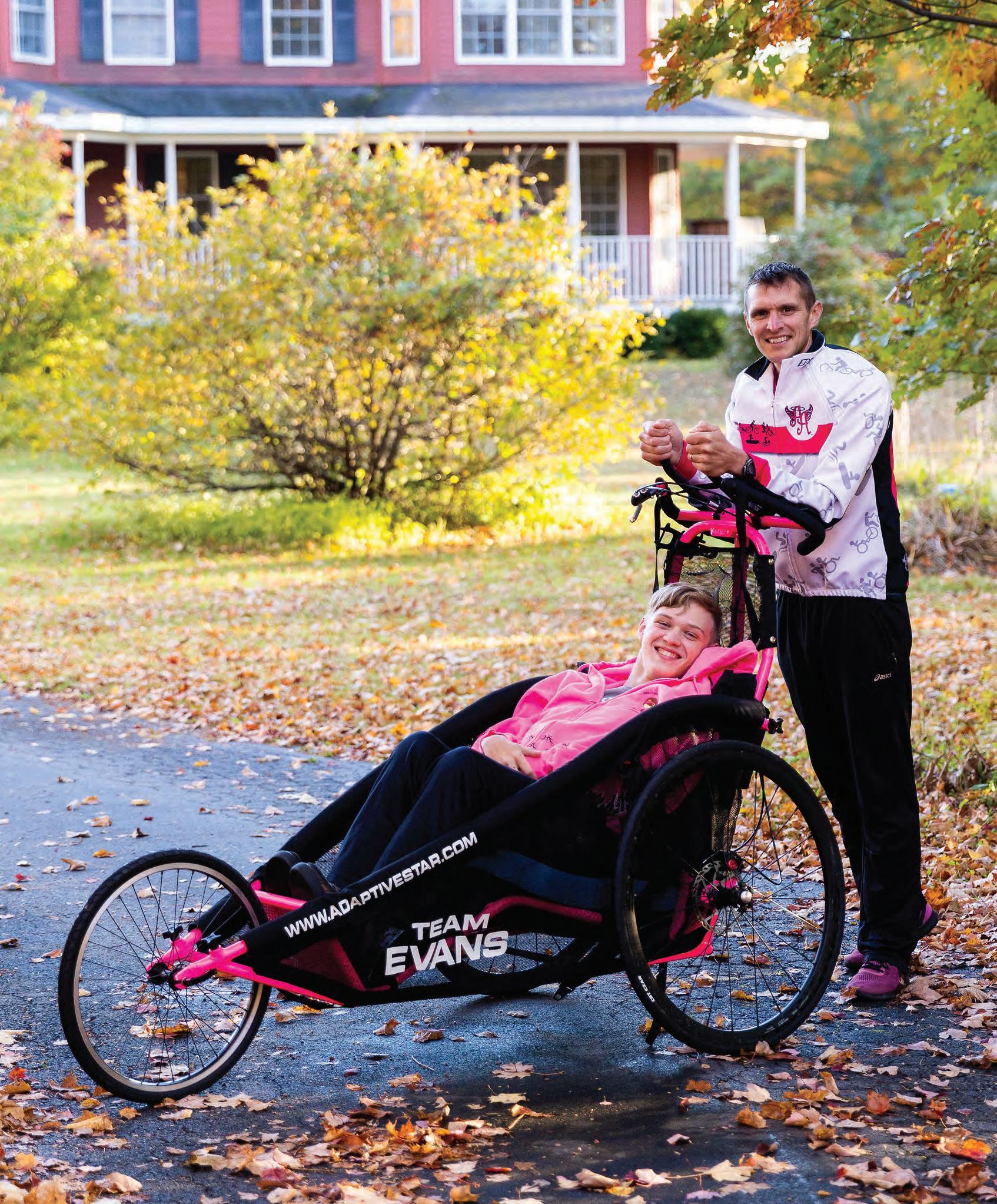
Jeff Yule
Executive Director Building on Love
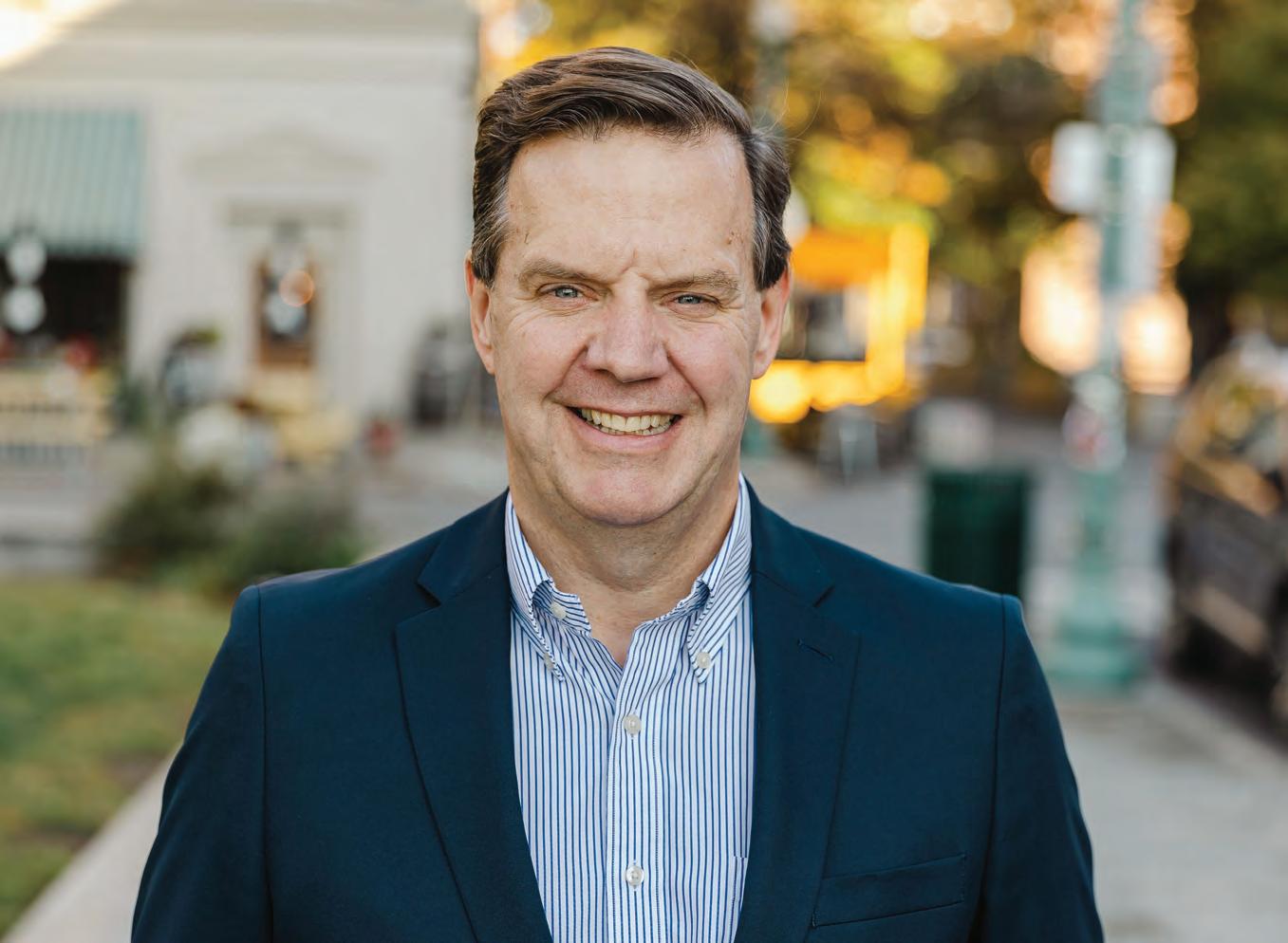
Jeff Yule’s first experience in the world of helping families care for sick kids was as a parent of a sick kid. “Our son Patrick was born with an Apgar of 1 at Saratoga Hospital,” Yule says. “I almost lost both my wife and son during the delivery.” The couple stayed at Albany’s Ronald McDonald House while Patrick was in the NICU, and found themselves back there two years later when their daughter was born two months prematurely. After that, Yule joined the Ronald McDonald House Charities (RMHC) of the Capital Region’s board, and eventually became the organization’s executive director.
It was at RMHC that Yule met Jerry and Diane Abdelnour, who were very active volunteers with the organization. The Abdelnours eventually formed their own charity called Building on Love, which provides direct financial support to families dealing with a long-term illness, whether it’s a child or parent who’s sick, by way of rent, mortgage or car payments, or gas cards. “At first we didn’t want to hand out gift cards,” says Yule, who’s served as Building on Love’s executive director for three years. “And now [given this past year’s inflated gas prices], families are putting gas on their credit cards, so the gas is going to cost exponentially more because they don’t have the wherewithal to pay off their credit cards. It’s a devastating thing.” And this isn’t just a few gas tank fill-ups we’re talking. A child’s cancer treatment isn’t always local, usually takes years, and often requires a parent has to stop working— and therefore stop earning an income— to get through it.
Currently, Building on Love, which is still a fairly new charity with limited resources, can provide up to $5,000 per family through its family grant program. “I dream that someday we can do $10,000,” Yule says. “Or someday, if you’re in the hospital for six months, we’ve got your mortgage covered.”
yule’s ride Jeff Yule makes sure
families dealing with health crises have financial help for costs beyond medical bills. He can empathize after having two critically ill babies and losing the second’s twin seven months into his wife’s pregnancy.
photograph by Konrad odhiambo
Starletta Smith
Executive Director YWCA of the Greater Capital Region
Starletta Smith brings a level of empathy and compassion to her role as executive director of the YWCA of the Greater Capital Region that is simply unparalleled. She found the organization via a community college internship and hasn’t looked back since—she was hired the next year, and took the helm 11 years later. But her unique perspective comes from her life before all of that.
By the time Smith graduated high school, she had two sons and a physically abusive husband twice her age. After having her older son at just 14 (she herself still loved Mickey Mouse), she eventually found the alternative high school she graduated from—her teachers would meet her at her job, since her husband didn’t want her in school—and she got help securing a safe apartment away from her abuser. She hadn’t known those types of services existed. So now she gives back by spreading the word, while fighting racism and promoting the importance of therapy.
“My passion comes from having been a teenage mom and a survivor of domestic violence,” Smith says. “I was too embarrassed to say that I needed help. My pride wouldn’t let me, and that kept me in a shell, suffering for longer. I understand what it’s like to feel alone and hopeless and want to now uplift women and give others hope.”
Smith’s branch of the YWCA is the area’s largest provider of supportive housing for single homeless women and homeless mothers. It also runs a food pantry, and has mental health services, career counseling, addiction treatment—everything it can to make institutional change benefitting women of color. Nationwide, the YWCA, over its 150-year span, has helped more than 2 million women.
“That’s a testament to how strong we are collectively,” Smith says. “We must eliminate racism and empower women—we can’t do either without the other. No human being is disposable. So we have to stop looking at what divides us and bring people together for the greater community.”
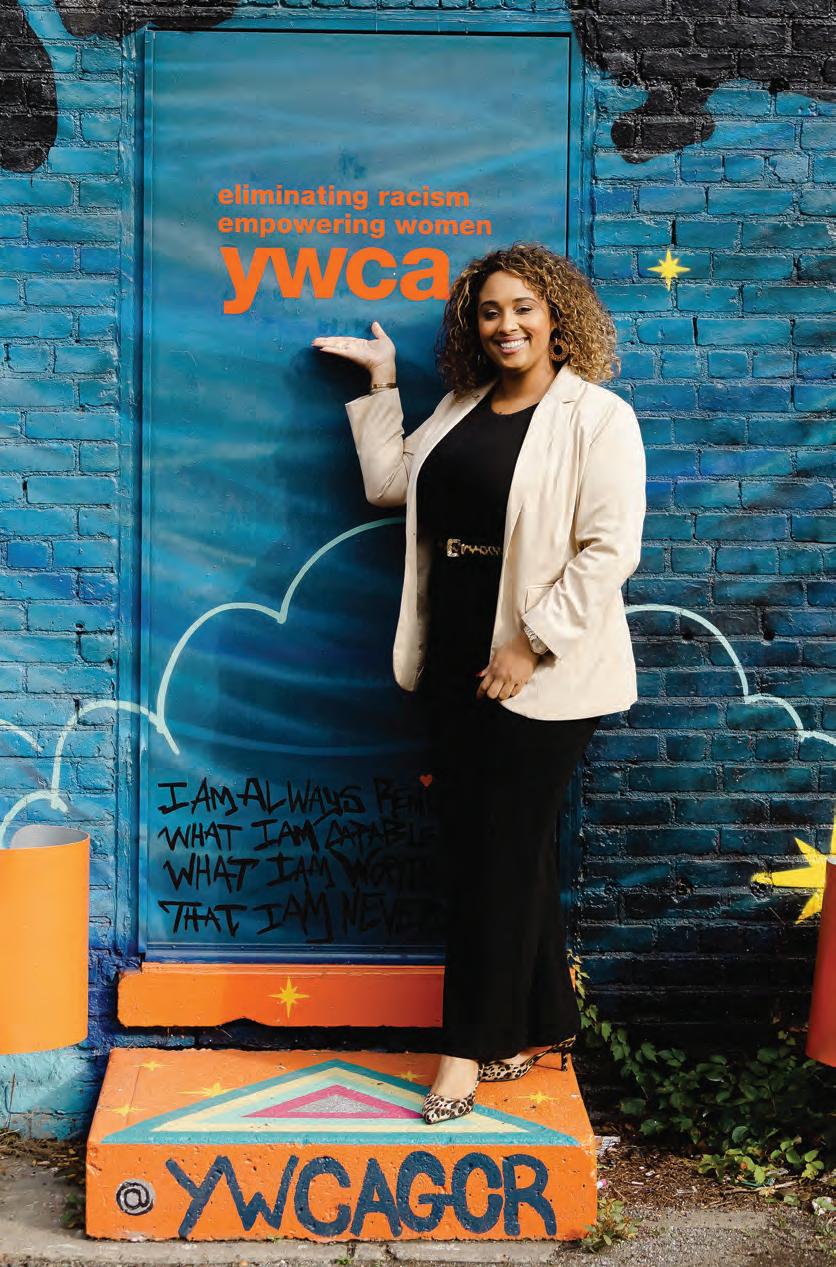
mother’s love YWCA’s Starletta
Smith credits her two sons for helping her break the cycle of “poverty and teenage parenthood—it was 15 years before I was doing it for myself. Now I work to give others hope.”
photograph by Konrad odhiambo
Anna Kuwabara

Executive Director Albany Symphony Orchestra
For the everyday Capital Regionite, COVID seems like a nightmare that has come and mostly gone. But for Albany Symphony Orchestra’s executive director, Anna Kuwabara, recovering from its aftermath is still very much on the forefront, as the arts struggle to secure the sponsorships needed in a belt-tightening, post-pandemic world. But there is an enchanting, driving silver lining: the music.
“The world needs more touches of magic, and music is something that connects to your heart and soul,” Kuwabara says. “Some people are still scared to leave their homes or maybe still feel uncomfortable around groups of people. There has to be a reason to take that step out to go and see other people—that’s what the arts can offer.”
Kuwabara has been in the orchestra world for more than three decades and was drawn to Albany’s symphony (and its renowned music director David Allen Miller) because of its long history of throwing itself behind new music. When the performing arts industry as a whole started to focus on increasing diversity, Albany was ahead of the game.
“We’re doing a lot of work on diversity, equity and inclusion now,” she says, pointing at a goose bumpinducing opening night piece by Black composer Joel Thompson, which ended with (almost all of) the musicians standing up and singing to represent the unity and vulnerability needed in the world right now. “And after three decades of David and the orchestra’s commitment to new music, it feels like a natural extension of our work to find and amplify voices of all kinds.”
Since COVID, the symphony has suffered a 25 percent drop in donations, which not only go to funding the concerts, but also its educational programs that ensure the local arts community is fostered in the next generation.
“People,” Kuwabara says, “should have access to what makes life rich and beautiful.”
sound of music The arts
are a way to feel less alone in a post-pandemic world, says Anna Kuwabara: “Music connects to your heart and soul, and connects you to others who are having the same experience.”
photograph by Konrad odhiambo
Mike McNary

Board Member Huntington’s Disease Society of America, Albany Chapter
In 1996, Mike and Teresa McNary, a young and healthy couple with two children, got a call that would change their lives forever. Teresa’s estranged father, whom she hadn’t seen in 25 years, had died of a disease called Huntington’s. “We started researching what it is,” Mike says, “and said, ‘Oh, crap. This is not good.’”
Huntington’s is an incurable, heredity brain disease that causes a deterioration in a person’s physical, mental and emotional abilities. Symptoms, which have been
a husband’s love Mike McNary
lost his wife to Huntington’s five years ago, and now his 28-year-old daughter has begun experiencing symptoms of the disease.
photograph by Francesco D’Amico
described as having ALS,
Parkinson’s and Alzheimer’s simultaneously, typically begin between the ages of 30 and 50 and worsen over the course of 10 to 25 years until, ultimately, the person dies. If a parent has it, there’s a 50/50 chance his or her child will have it. Teresa got tested, and she had it.
“In 2001, some things started happening to her personality,” Mike says. “She got in some arguments at work and got fired. One of the biggest symptoms was her inability to understand what is right and wrong. Rules didn’t apply to her. We had to take her license away. It was like living with an ornery Alzheimer’s patient that still has the ability to fight and be really tough to deal with because they’re young.”
Caring for Teresa eventually became too much for Mike, and she moved to a Huntington’s-specific nursing home in Lee, MA in 2013. (Most regular nursing homes don’t accept Huntington’s patients because they’re too difficult to care for.) After four and a half years, she passed away, but the nightmare the McNary family had lived through wasn’t over: Both of Mike and Teresa’s children got tested and are positive for the Huntington’s gene.
For the last 10 years or so, Mike has done the only thing he can do: serve on the board of the Huntington’s Disease Society of America’s Albany Chapter. “The mission, obviously, is just like the mission for cancer societies,” he says of the organization. “Find the cure.”




